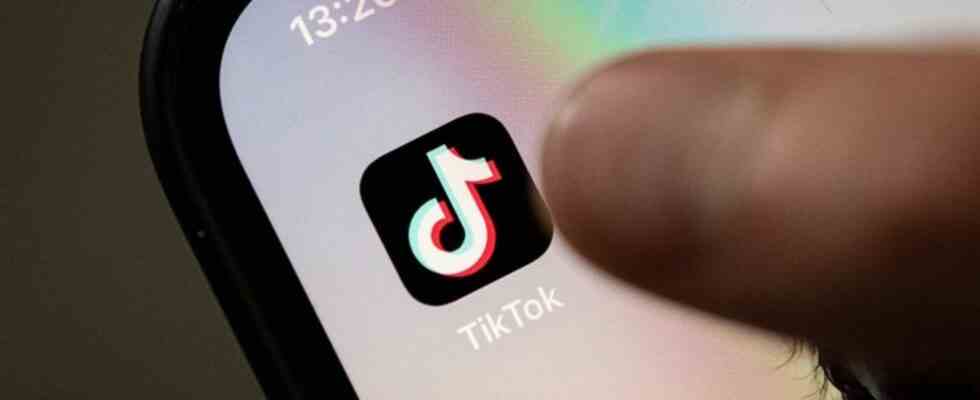video platform
Youtube wants to lure creative people away from TikTok
TikTok app on a smartphone. From the beginning of next year, YouTube partners will share in the revenue on both the main YouTube platform and “Shorts”. photo
© Marijan Murat/dpa
TikTok appears as a bogeyman to the big Internet companies in the USA. In order to be able to counteract the success of the Chinese, YouTubers should now get more money.
In the future, YouTube also wants to give the creators of short videos (“shorts”) a share of the advertising revenue. This provides for changes to the YouTube partner program that were presented in Los Angeles on Tuesday (local time). So far, the “creators” have only benefited financially from the advertising revenue generated by the Google video platform on the main YouTube platform.
Short videos on “Shorts”, with which YouTube has been competing against Chinese competitor TikTok since 2020, have not yet been monetized. They often only served as a means to lure users to a YouTube channel with longer videos.
$50 billion paid out
According to YouTube boss Susan Wojcicki, the Google subsidiary has distributed over 50 billion dollars to creators, artists and media companies via the YouTube partner program, which was launched in 2007. However, the videos posted on “Shorts” were not included. According to YouTube, the short video service now has 30 billion views a day and more than 1.5 billion users who log in there at least once a month.
Starting early next year, YouTube partners will share in the revenue on both the main YouTube platform and “Shorts”. “Shorts-focused” creators can apply to the program if they have at least 1,000 subscribers and 10 million shorts views within 90 days.
The company will also launch Creator Music, an online catalog that will allow YouTube creators to license copyrighted music for use in long videos. YouTubers who don’t want to pay for licenses can alternatively share advertising revenue with copyright owners. Until now, many YouTubers have used royalty-free music or risked having their videos taken offline for copyright infringement.

